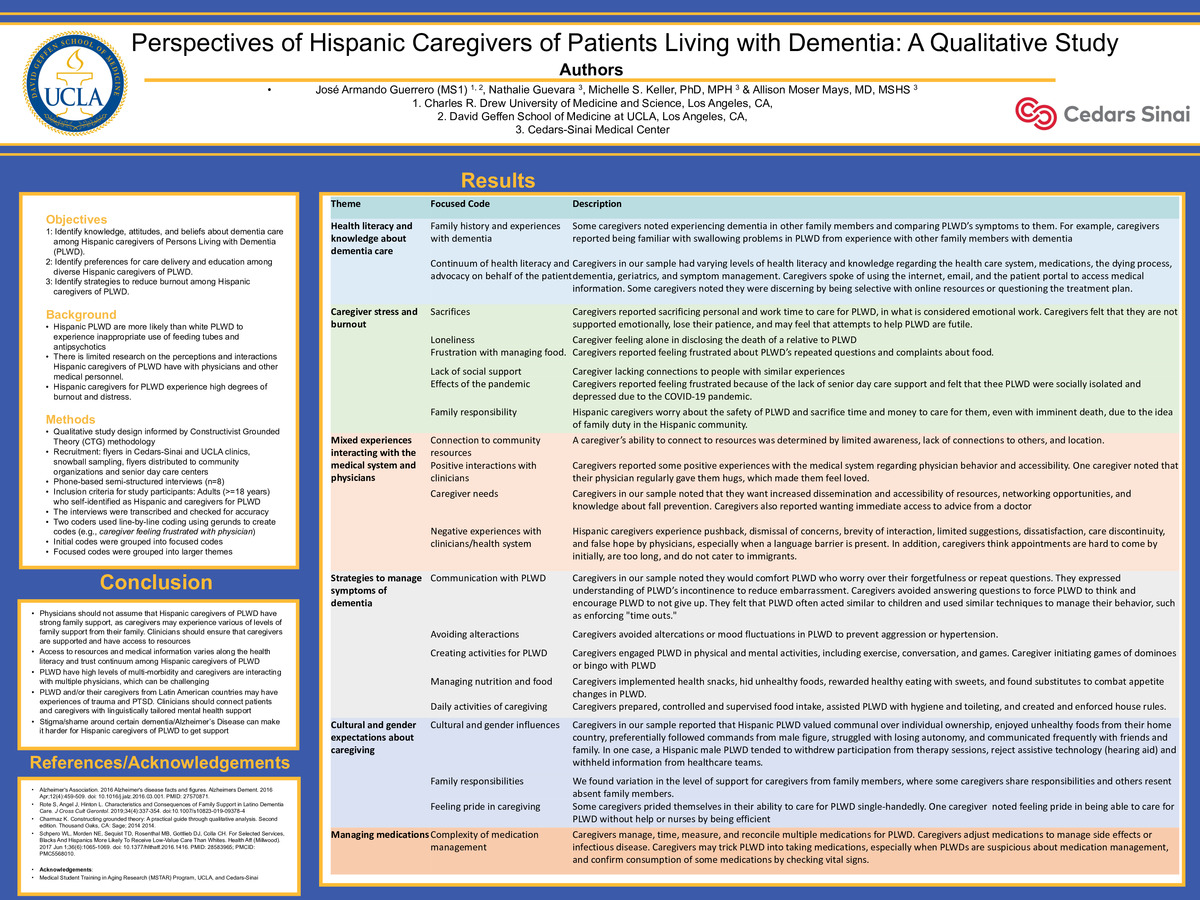-
Author
Jose Guerrero -
PI
Dr. Keller
-
Co-Author
Dr. Mays, Nathalie Guevara
-
Title
Perspectives of Hispanic Caregivers of Patients Living with Dementia: A Qualitative Study
-
Program
Medical Student Training in Aging (MSTAR) Research Program
-
Other Program (if not listed above)
-
Abstract
Importance: Latino older adults are more likely than white older adults to be diagnosed with dementia. Hispanic patients living with dementia (PLWD) are more likely than their white counterparts to receive low-value care – like the inappropriate use of feeding tubes and antipsychotics.
Objectives:
1: Identify knowledge, attitudes, and beliefs about low-value care among Hispanic caregivers of PLWD.
2: Identify preferences for care delivery and education among diverse Hispanic caregivers to decrease low value care of PLWD.
3: Identify strategies to reduce burnout among Hispanic caregivers of PLWD.
Design:
Recruitment consisted of flyers in Cedars-Sinai and UCLA clinics, snowball sampling, and flyers distributed to community organizations and senior day care centers. Caregivers participated in a 60–90-minute semi-structured phone interview. Interviews were transcribed and coded with line-by-line coding using gerunds (e.g., caregiver feeling frustrated with physician).
Setting: Los Angeles
Participants: Eight adult caregivers were chosen exclusively from the Hispanic community, representing home countries: Peru, Venezuela, El Salvador, and Mexico.
Results:
Six major themes were supported by our codes: Health literacy and knowledge about dementia care, Caregiver stress and burnout, Mixed experiences interacting with the medical system and physicians, Strategies to manage symptoms of dementia, Cultural and gender expectations about caregiving, and Managing medications.
Conclusions and Relevance:
Physicians should not assume that Hispanic caregivers of PLWD have strong family support, as caregivers may experience various of levels of family support. Clinicians should ensure that caregivers are supported and have access to resources.
Access to resources and medical information varies along the health literacy and trust continuum among Hispanic caregivers of PLWD.
PLWD have high levels of multi-morbidity and caregivers are interacting with multiple physicians, which can be challenging
PLWD and/or their caregivers from Latin American countries may have experiences of trauma and PTSD. Clinicians should connect patients and caregivers with linguistically tailored mental health support.
Stigma/shame around certain conditions like dementia/Alzheimer’s Disease can make it harder for Hispanic caregivers of PLWD to get support.
-
PDF
-
Zoom

